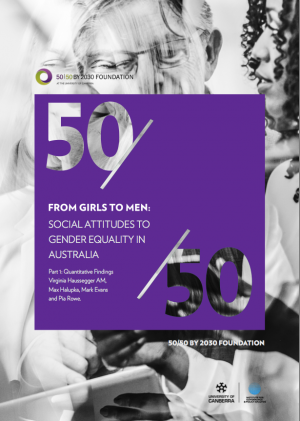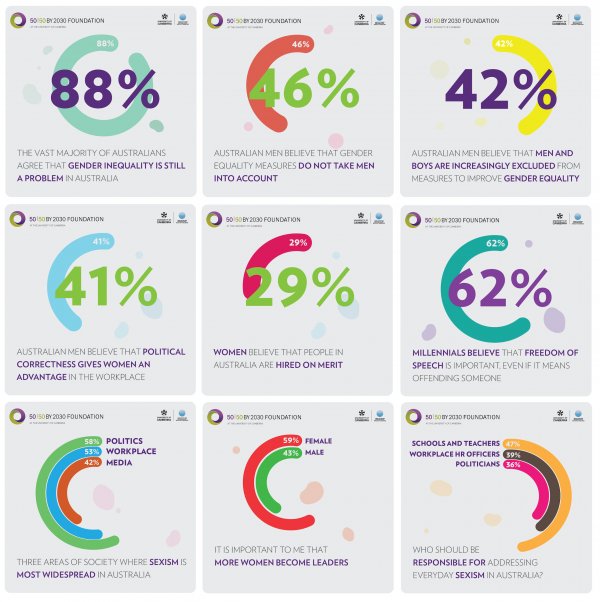Foreword
When the 50/50 by 2030 Foundation was launched in 2017 we believed Australia had hit a nadir in gender equality policy and purpose. Years of effort to remove entrenched organisational, cultural and social barriers to women’s progress were not landing the results we all expected by now.
To tackle the issue head on, we gathered some of the best minds and most dedicated equality warriors together and committed ourselves to a clear and uncompromising vision:
BY THE YEAR 2030 MEN AND WOMEN WILL BE EQUALLY REPRESENTED IN LEADERSHIP AND KEY DECISION MAKING ROLES AT ALL LEVELS OF GOVERNMENT AND PUBLIC ADMINISTRATION THROUGHOUT AUSTRALIA, AND ACROSS OUR REGION.
Proceeding from the assumption that there would be popular support for such a vision, as Director of the Foundation I began an informal talking tour around the nation, and further afield, only to quickly learn that not all Australians share our vision. But even more surprising were those ‘unscripted’ and unguarded comments from senior leaders, in prominent and infuential roles, who revealed an inherent discomfort with the idea of 50/50 leadership.
These anti-equality attitudes, often expressed through anecdotes about ‘political correctness’, took us by surprise and sent the 50/50 Foundation team trawling through the available research to deepen our understanding of what Australians really think and believe about the rights, roles and responsibilities of men and women.
What we found was a profound national knowledge gap
What we found was a profound national knowledge gap. There was no national data, across all generations, that covered the range of themes and questions you will find in this report. This major gap in research on Australian attitudes to gender equality is one of the core reasons why well intentioned social policies and programs have continuously failed to close persistent gender gaps across the lifespan of Australians. Our landmark survey aims to change that.
We intend to follow this report with stage two of our National Survey by taking a deeper dive into the hearts and minds of Australians. We want to hear their stories and more fully understand their attitudes and fears about living and working with gender diverse leadership that re ects the true composition of our communities, and our nation.

Executive summary
Purpose
This report presents the findings derived from a national survey of 2,122 Australians about their attitudes to issues of sexism and gender inequality. The survey was conducted online in March 2018, with participants recruited from a combination of online panels and via social media advertising. The survey explored: 1) the attitudes of boys, girls, men and women to issues of gender equality and empowerment; 2) attitudinal differences by generation; and, 3) the relationship between online activity (social media browsing, game playing and recreational browsing) and attitudes to gender equality.
Findings
Millennials, generally defined as people born between 1982 and 2000, were supposed to be the generation that forged what has been called “a new national consensus” in favor of gender equality. Indeed, in February the prominent Columbia professor Jeffrey Sachs labeled the 2016 election, where an extremely qualified female candidate lost to a man with a history of disrespecting women, “a blip” on the road to the egalitarian society that will be achieved once millennial voters outnumber their conservative elders (Tim Enthoven, the New Yorker, 31 March 2017).
As Tim Enthoven observes, just a short time ago liberal democracies around the world were viewed to be moving inexorably towards a gender neutral future with the election of Hillary Clinton to the American presidency representing an international consensus on gender equality. Then in a dramatic turn of events a man perceived to be the symbol of western male misogyny was nudged into power without winning the popular vote. The post-election analysis showed that while 63 per cent of young women voted for Clinton, only 47 per cent of young men did so (Kawashima-Ginsberg 2017). Moreover, 10 per cent fewer voted for Clinton than Obama in 2008. The promise of male millennials delivering a gender equal future came to an abrupt stop (Cassino 2017 and Pepin and Cotter 2017).
The depressing news from our survey is that Australia appears to be following the trend. Not only did the Australian Liberal Party fail to replace its outgoing leader and Prime Minister with a politician perceived by many to be the most qualified and popular person for the job, Julie Bishop, but a growing number of Millennial and Gen X men appear to be alienated from the process of change and are backsliding into traditional value systems. This is all the more worrying when we can also find significant evidence of high levels of knowledge and understanding about the nature of gender inequality in Australia.
Please consider the following findings.
Core narratives on gender equality in Australia
Australians are united in the view that gender inequality is still an issue in Australia
Our survey found that an overwhelming proportion of Australians (88 per cent) agreed that inequality between women and men is still a problem in Australia today. This observation is consistent with comparable surveys conducted nationally since 2009.
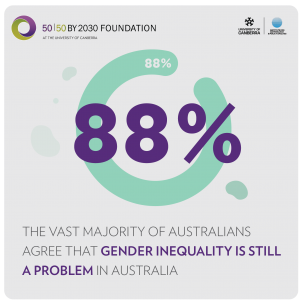 However, Australia is featured by complex, often contradictory value systems underpinning the gender equality debate
However, Australia is featured by complex, often contradictory value systems underpinning the gender equality debate
There are three distinctive voices in the gender equality debate in Australia: the traditional view, the moderate view, and the progressive view. The traditional view on gender equality revolves around negative views of women in leadership roles, and traditional views on women in the workplace and the home. The moderate view combines a more egalitarian set of views around gender equality in the workplace and at home with rising concern over what they understand as the growing political correctness of Australian society. This value system is characterised by a desire for a greater focus on men’s rights as well as women’s rights, and concern for freedom of speech and promotion of a more inclusive discussion on gender equality. This view is distinctive from the traditional view given its rhetorical support for gender equality but may well be vulnerable to unconscious bias against women in the workplace; although we have no evidence to support this thesis from our survey findings.
The progressive view represents Australians who most strongly align with the need for concerted policy action on gender equality issues both in the workplace and more broadly in society.
Significantly, the prevalence of these three sets of views are not uniform, with 38 per cent of Australians exhibiting components of the traditional value system, 63 per cent components of the moderate value system, and 89 per cent components of the progressive value system. It is important to note that attitudinal viewpoints are not mutually exclusive, with many Australian falling into multiple types depending on their own complex range of opinions on gender politics and personal circumstances. However, there does appear to be a convergence around the moderate value system which is unlikely to facilitate anything other than incremental change given the contradictions therein.
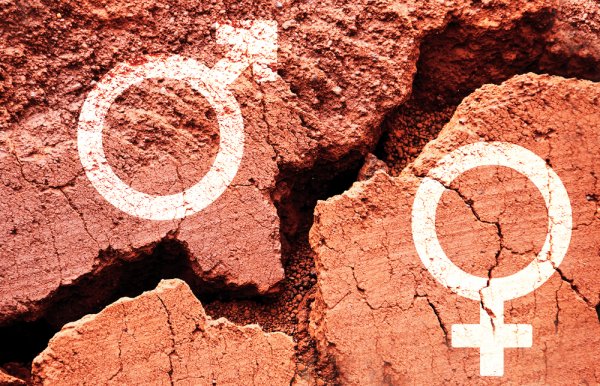
Australians across all generations have a clear and sophisticated understanding of the nature and experience of sexism
Men and women agreed on the areas of society where sexism is most widespread (politics, workplace, media) although females were significantly more likely to nominate politics and the workplace while males were more likely to claim that sexism wasn’t widespread in any of the suggested areas of society. However, if Australian governments are to make authentic progress on these issues they will need to take a hard look at themselves first. When asked to identify areas of society where sexism is most widespread, both men (53 per cent) and women (63 per cent) were in agreement that Australian politics was one of the worst perpetrators of sexism. Comparative findings from the Eurobarometer suggest that politics in Australia is perceived to be much more sexist than in Europe. 
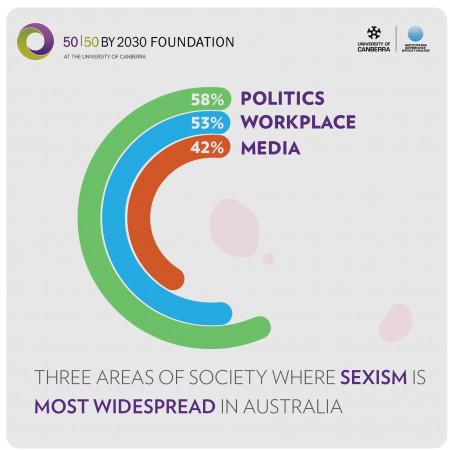
If Australian governments are to make authentic progress on these issues they will need to take a hard look at themselves first
There were some differences between generations in which areas of society they believe sexism is most prevalent. The area of clearest difference was, unsurprisingly, social media. Millennials (38 per cent) and Gen Z (44 per cent) respondents considered this to be a significant space for experiencing sexism in contrast to Gen X (23 per cent), Baby Boomers (25 per cent) and Builders (22 per cent).
Men have been forgotten in the struggle for gender equality
Our survey reveals a worrying statistic in this regard: nearly half of all male respondents “agreed or strongly agreed” with the statement that “gender equality strategies in the workplace do not take men into account”. If we disaggregate the data by generation, we find that while millennial and builder males were most likely to report feelings of being left out, all generations exhibited similar sentiments. Millennial males were also significantly more likely (48 per cent) to “agree/strongly agree” with the statement that “Men and boys are increasingly excluded from measures to improve gender equality”, followed by Gen Z males at 44 per cent. Gender equality measures are not the only interventions that are perceived by men to deepen, rather than fix existing inequalities. The highly contested concept of freedom of speech also reveals significant gendered differences, with men far more likely to say that political correctness benefits women in the workplace.
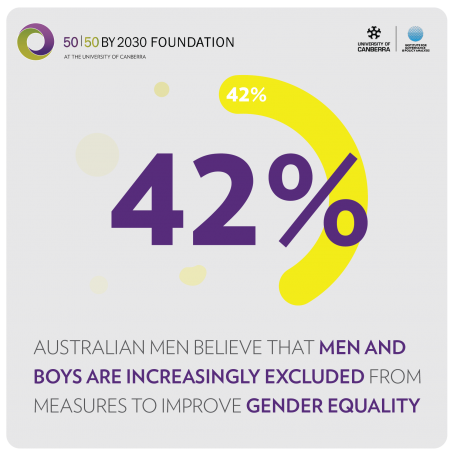
These results give us significant cause for concern. The observation that younger generations of men view themselves as outsiders, actively excluded from what is now increasingly one of the key debates in many workplaces indicates that there is no room for complacency if we want to avoid a backlash against workplace interventions to address gender inequality.
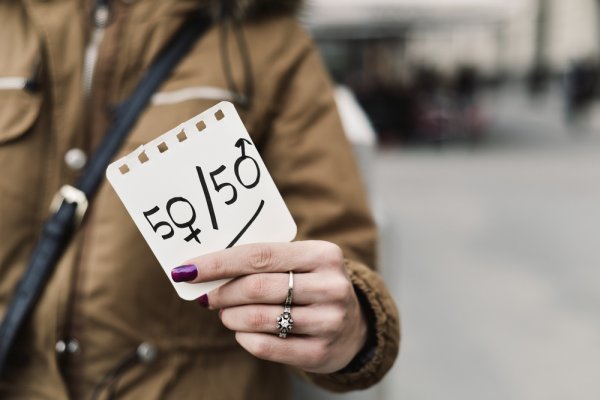
Male moderates are champions of men’s rights
The moderate perspective combines an egalitarian set of views around gender equality in the workplace and at home with rising concern over what they understand as the growing impact of political correctness in Australian society, as well as a strong desire to see men’s rights equally represented in public discussion of equality issues. Given that 62 per cent of Australians align with the moderate position, and its value system this represents a significant barrier to gender equality.
A significant correlation was found between online behaviours – particularly online gaming – with normative attitudes to gender roles (such as believing that men are better suited to leadership).
The development of traditional value systems particularly within the male Millennial generation is linked to the gaming culture and other online behaviours
The development of traditional value systems particularly within the male Millennial generation is linked to the gaming culture and other online behaviours. Analysis of the generational data found a positive correlation between older generations and traditional views on gender equality with one generational exception. Millennial men also agreed with traditional understandings of gender roles in the home and the workplace (such as “women are best suited to be the primary carer of children”). On closer inspection, a principle component analysis shows that the traditional perspective shared by Millennial males has several distinctive features, including the statements: “girls should not be out in public places after dark”; and, “men dominate sexual relations”.
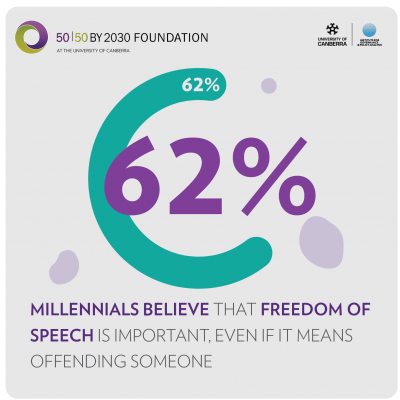
We also discovered a significant relationship between the length of time that young males spend playing video games, and their alignment with this ‘millennial’ traditional position; 62 per cent of young Millennial males who play online video games for an above average length of time, align positively with traditional views on gender equality. Surprisingly, 34 per cent of Millennial females displaying the same characteristics also aligned positively with traditional views on gender equality.
Rural Australia is leading the way on positive attitudes to gender equality issues in Australia
When we compared social attitudes in rural and metropolitan regions, unsurprisingly metropolitan regions tended to be more progressive in their views (70 per cent) with rural Australia closely following at 65 per cent. However, when moderate and traditional perspectives are taken into account, the picture changed quite dramatically. The traditional voice is stronger in metropolitan regions (44 per cent), and the moderate voice firmly belongs to rural Australia (66 per cent).
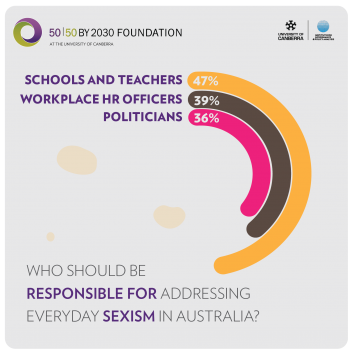
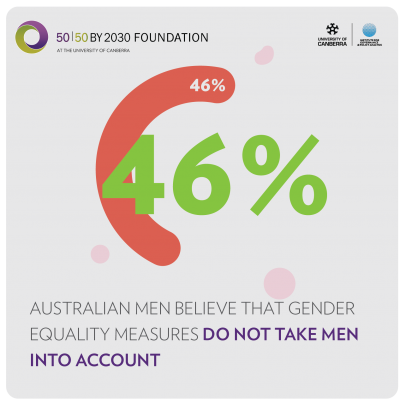
In conclusion
The evidence presented above suggests that many women are still being held back by traditional beliefs, with social norms continuing to push women into traditional roles. And although tradition no longer has a vice like grip both men and women occupying the moderate value system still share clearly defined and often stereotypical views of what men and women are better at in the home and the workplace. There has been a twist in the tale in the sense that moderate men want to push gender equality forward, but they appear to be held back by their fear of change and increased economic insecurity.
And what about Millennial males? It should firstly be noted, of course, that the category is an extremely amorphous one which brings together a group of people from across a broad age group (18 to 37 years old), featured by diversity in terms of social income, ethnicity, religion, and educational background. But nonetheless our survey findings, together with comparable findings in the United States (see Cassino 2017; Pepin and Cotter; and, Kei Kawashima-Ginsberg, 2017) require us to think through the puzzle. The key questions here are whether these trends represent a backslide or a backlash? And, for those interested in forging a national consensus on gender equality what can be done to reverse the trend?
What is certain is that the research on gender equality in Australia continues to raise more questions than answers
What is certain is that the research on gender equality in Australia continues to raise more questions than answers. In particular, we need to explain the rhetoric-reality gap in the home, the workplace and broader society. We need to understand what men fear from gender equality. What do they think they will lose from a gender equality agenda? And, what policy interventions could incite their support? This will be the focus for part two of our research program and a key topic for our focus group study.
Read the full report, ‘From girls to men: Social attitudes to gender equality in Australia’ here.
